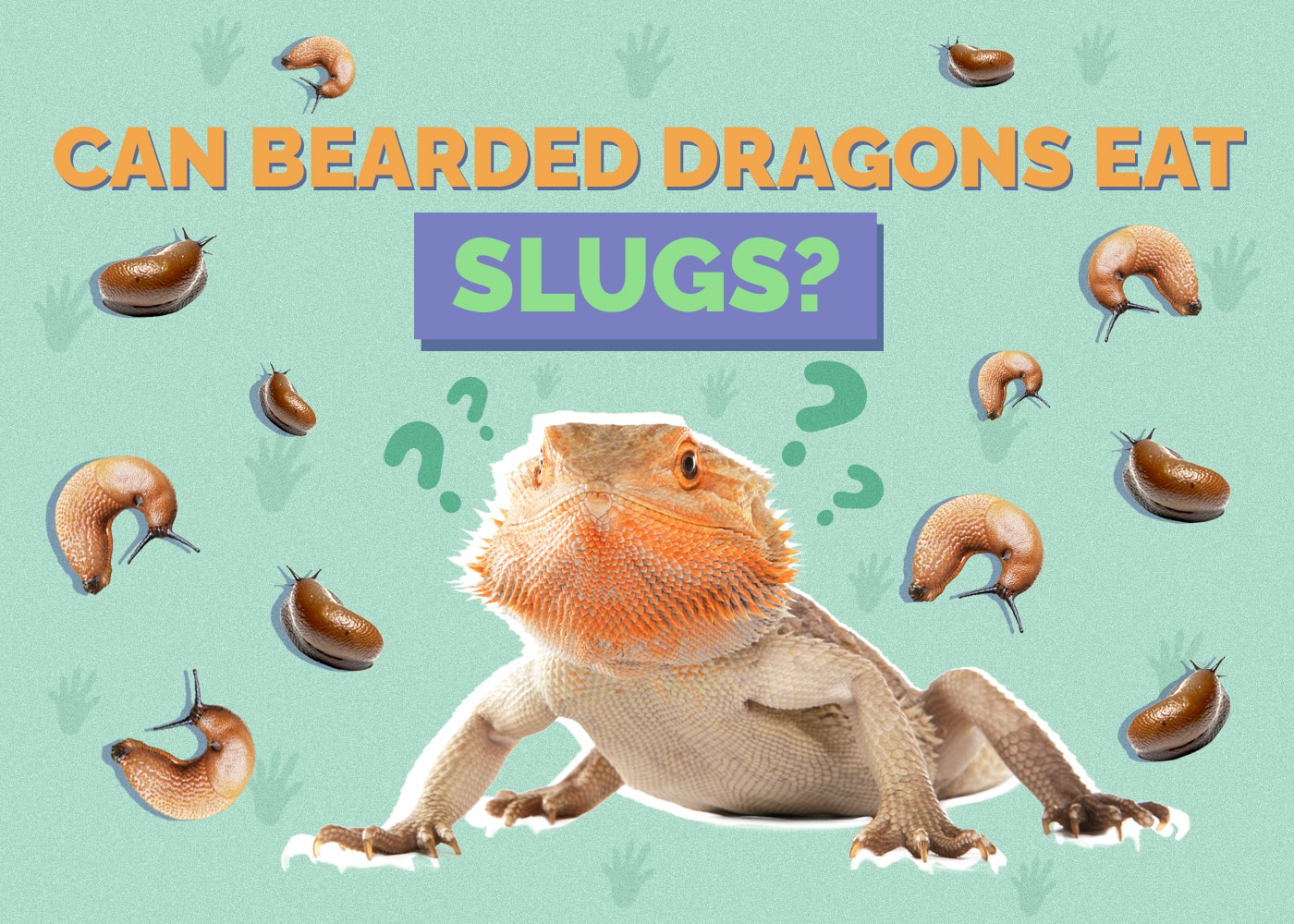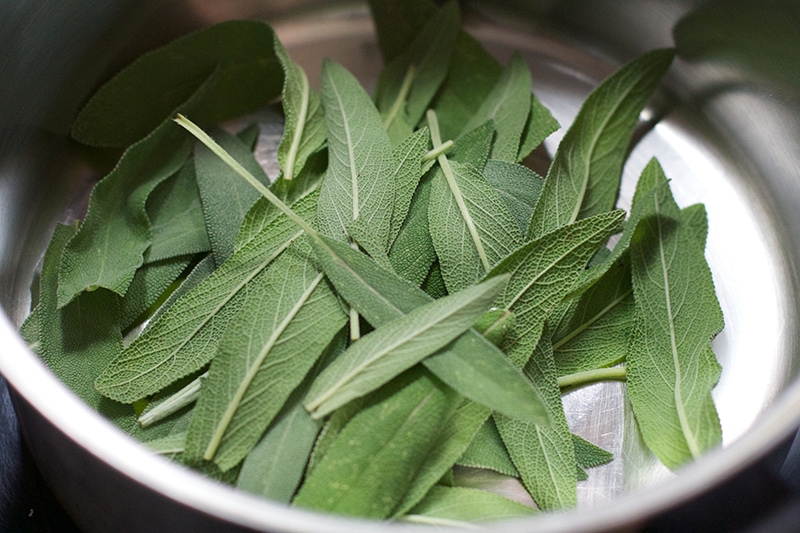How Long Can a Bearded Dragon Go Without Eating? Vet-Reviewed Facts
Updated on
Bearded Dragons don’t need to eat all the time like mammals. Instead, they can go 1–2 weeks without eating, especially adults. Because adults aren’t growing, they don’t require much food. Furthermore, Bearded Dragons tend to have slow digestion, so one meal can sit in their stomach for a while.
Juvenile and injured Bearded Dragons may not be able to go this far between meals, though. These Dragons are going through more calories, so they must eat more.
Because lizards don’t produce their own body heat, their environment also affects their digestion. If it is colder, their stomach may stay full for longer, and they may not eat as much.

Normal Feeding Habits of Bearded Dragons
Bearded Dragons are omnivores, so they consume both plant and animal foods. In the wild, they consume mostly insects and snack on leaves, flowers, and fruits. In captivity, their diet should be similar.
Generally, adults should be fed every 1–3 days. Food can be offered, but many older Dragons won’t eat every time they are offered food. Again, it takes their food some time to digest, so they won’t get hungry for some time after eating.
Younger Dragons need to be fed more. Their metabolism is faster, and they go through more calories. In the end, this means that they must eat more. Sometimes, very young Bearded Dragons must be fed 2 to 3 times a day. You should establish a feeding schedule to ensure you’re offering enough food.
Bearded Dragons should be offered many different kinds of food and should consume about 50% plants and 50% insects 1. These insects can include mealworms, crickets, and roaches. About 90% of the plants offered should be green, leafy veggies. Fruits can be offered, too, but they often aren’t the most nutritious option.
Most Bearded Dragons require calcium supplements, which can be provided in a powdered form. However, it should be lightly sprinkled and only utilized 2–3 times a week. The dust sticks best when used on moist foods, so adding it to your Bearded Dragon’s veggies is recommended.
Bearded Dragons must be fed insects, plants, and supplements a few times a week (or more for juveniles). However, they can technically go longer between feedings—though it isn’t necessarily good for them.
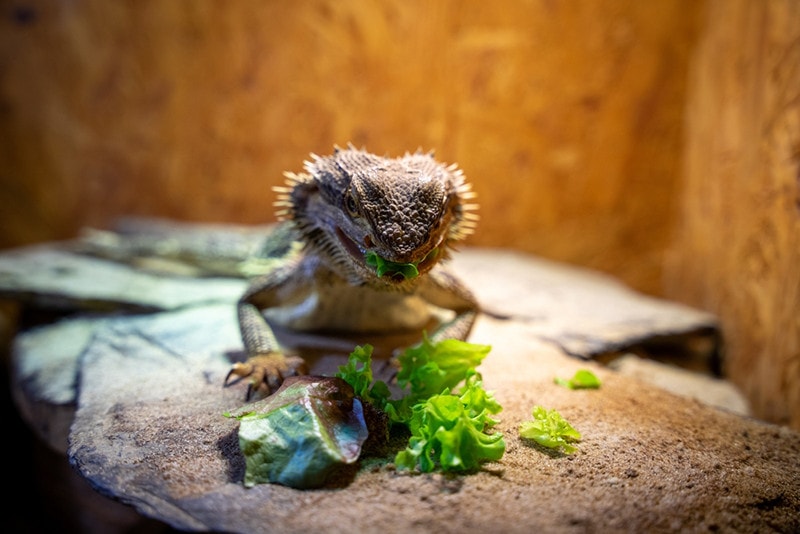

Reasons Why Bearded Dragons Stop Eating
With that said Bearded Dragons can stop eating for many reasons. If your Beardie only turns down one meal, there usually isn’t anything to be concerned with. Their last meal may just not be completely digested.
Here are some common reasons Bearded Dragons may not eat:
1. Shedding
Bearded Dragons naturally shed their skin as they grow, like other reptiles. Younger lizards will shed more often because they are growing more. Many won’t eat much while shedding, but this process shouldn’t take more than a couple of days. After that, feeding should return to normal.
2. Brumation
Brumation is a bit like hibernation, but for reptiles. It decreases the lizard’s activity level and metabolic rate, making them eat less. In the wild, reptiles brumate when winter approaches. In captivity, they can brumate for several reasons, including temperature and lighting changes.
This is natural behavior, so it isn’t anything to be concerned about.
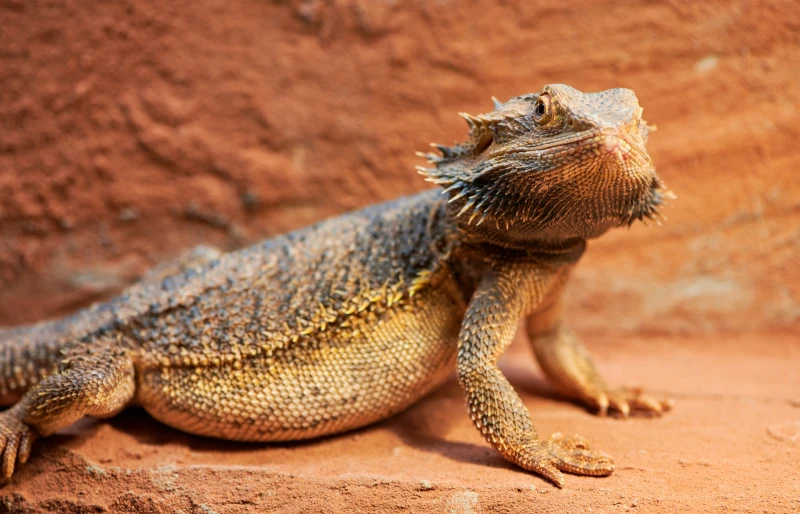
3. Illness
Just like most animals, Bearded Dragons will often stop eating when they are ill. Common health problems include respiratory infections, parasitic infections, and impaction—all of these can affect your lizard’s appetite. If your beardie shows signs of these illnesses, you need to speak to your vet immediately.
4. Environmental Factors
If something in their environment changes, Bearded Dragons may stop eating due to stress. Temperature changes particularly cause stress, but humidity can also affect beardies. Furthermore, they may become agitated if there is too much noise or activity around their enclosure.

Signs of Hunger and Malnourishment
Everything we’ve stated thus far has only been a guideline. All Bearded Dragons are individuals, and their food needs may differ from one another. Many different factors are involved, including the exact temperature and humidity of their environment.
Bearded Dragons will show their hunger in several ways, but these can differ depending on their personality. They may be looking for food, which often involves them mistaking fingers and other inedibles with food. They may be more active and show a heightened interest in their environment. They may also seem excited when you open the lid to their cage.
Malnutrition occurs when Bearded Dragons don’t get the food they need for an extended period. Because these Dragons aren’t getting what they need, they may develop different problems. These signs include weight loss, lethargy, and poor growth. Younger Bearded Dragons will be affected more heavily as they are still growing.
In extreme cases, Bearded Dragons may exhibit dull skin, deformed bones, or a bloated appearance.
If you notice these signs, consider that you may not be feeding your bearded dragon enough. Ideally, have your Dragon checked by a vet, as soon as noticing any such concerns, as well.
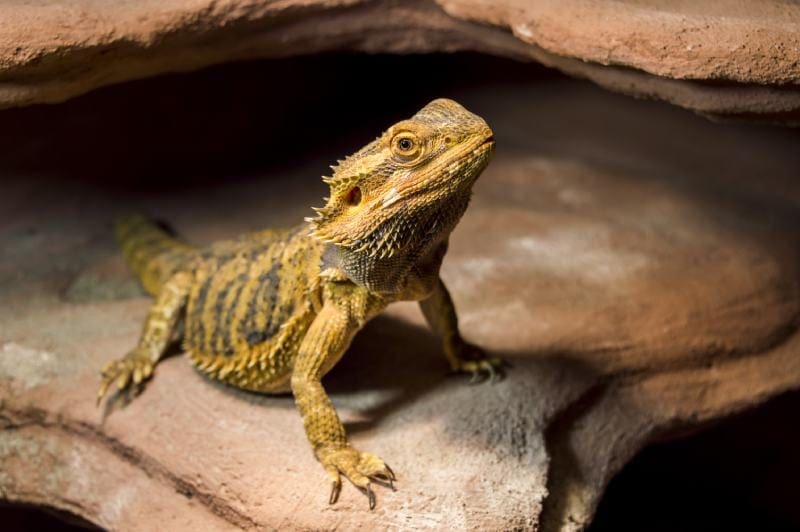
What To Do If Your Bearded Dragon Isn’t Eating
If your bearded dragon isn’t eating, it can be worrisome. Remember, Bearded Dragons may not eat every meal offered—this is completely normal. However, you may want to consider why, if they skip several meals.
First, check their environment to ensure the correct temperature and humidity. Note any changes over the past few days and see if they have caused stress. These lizards require very specific environmental conditions to thrive, which need to be met to eat properly.
Sometimes, it’s the specific type of food your Dragon doesn’t like. Try offering a different food altogether to see if they want something else. Of course, always ensure the foods are appropriate for your Bearded Dragon.
Bearded Dragons are more likely to eat when they are alert and awake. Trying to feed them in the middle of the night will likely be unsuccessful. Therefore, ensure you’re feeding your Beardie when they are active. You can also try offering food differently. Try using a different bowl, for instance. If you’re using bowls, try hand feeding.
If your Beardie still isn’t eating, you should consider taking them to the veterinarian. Illnesses can make them stop eating, and these need to be treated by a vet. The vet should specialize in reptile care to ensure your Beardie gets the best treatment.

Final Thoughts
Bearded Dragons must eat every week or two before they starve. However, adults often thrive when fed every couple of days. Juveniles need to be fed more often as they are growing more. You should offer your adult Bearded Dragon food every day or every other day. However, they may not eat every meal, which is completely normal.
Illnesses can prevent a bearded dragon from eating, shedding, and other conditions. If your beardie isn’t eating for several meals, consider taking them to the vet to ensure they aren’t sick.
Featured Image Credit to: smilepoker, Shutterstock

